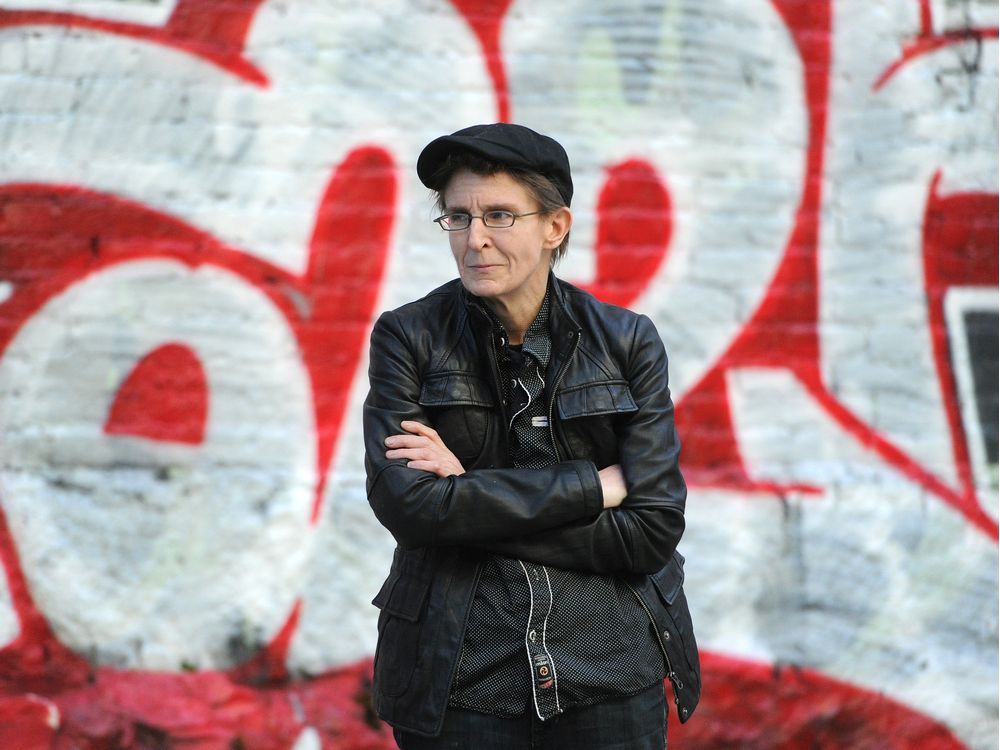Speaking truth to power, Downtown Eastside advocate Karen Ward pleads for people to listen

Credit to Author: Gordon McIntyre| Date: Sun, 23 Feb 2020 19:00:02 +0000
Karen Ward probably doesn’t fit your profile of a Downtown Eastside drug-user.
She’s whip smart, eloquent, passionate and has a job with the City of Vancouver, but then everyone’s profile of any user in the DTES is probably ill-informed.
“Even sometimes with my interactions with researchers, drug-policy types or clinician types, they’re like, ‘That’s nice, but we’re doctors,’ and I’ll say, ‘Look, we’re actually trying to do the same things here, please don’t pat me on the head and send me on my way.’ It’s very frustrating. The talking down, the infantilizing, the assumption that they know what’s best for us is really a part of the problem in the neighbourhood in general.
“Clearly there’s a disconnect between what’s provided and what’s necessary.”
Ward has had a contract with the city for just over a year advising on drug policy, drug-supply safety, overdose response, poverty reduction and ways to get the message out about contaminated drugs, working with Vancouver city staff who deal with social policy.
She’s an effective communicator with politicians, has been a board member with the Vancouver Area Network of Drug Users, is a strong advocate for decriminalization so users know just what they’re getting in their drugs and has been a volunteer policy adviser to the B.C. Centre for Disease Control.
Karen Ward is a drug-user who has a contract with the City of Vancouver to advise on drug policy, overdose prevention, drug-supply safety and poverty reduction in the Downtown Eastside, where she has lived since 2008.
Ward didn’t start using herself until her mid-30s. Born in Hamilton, she lived for a time in Halifax before switching coasts in 1999 at age 26. She studied history at the University of B.C. and was an artist at Gallery Gachet, an artist-run centre with the slogan, ‘Art is a Means of Survival.’
But she was also on a cocktail of prescribed psychiatric drugs that didn’t seem to be doing her any good. In fact, they made her feel not herself, like she hadn’t had a moment of clarity, of enjoying herself, for years. She had done a little bit of recreational cocaine use over the years, but at that point, in 2008, she began smoking crack cocaine regularly. Homeless for a couple of years, she got into social housing in 2010 and just turned 47 last week.
Ward has the street cred and the eyes on the ground to alert the city to things it would have no way of knowing about otherwise.
“Everything interconnects,” she said. “It’s strange to think about but there’s things that might happen here that have ripple effects that are huge, and there’s no way for the city to actually know about some of these things.”
For example, a cheque-cashing place that had been around for more than 20 years on Hastings Street suddenly was closed for good one day. So now, without warning, there was no place for many people to cash their welfare cheques.
“This created chaos,” Ward said. “People had no idea where to go.”
Karen Ward is a drug-user who has a contract with the City of Vancouver to advise on drug policy, overdose prevention, drug-supply safety and poverty reduction in the Downtown Eastside, where she has lived since 2008.
Banks are often not an option. For one thing, a lot of people don’t have identification or at least the proper ID. And then there’s the BMO incident, in which an Indigenous grandfather and his 12-year-old granddaughter were handcuffed by Vancouver police Dec. 20 after a bank teller grew suspicious because there was $30,000 in his account.
“People say, ‘Why don’t they have a bank account?’ and I think it was well-illustrated why people don’t have bank accounts by the controversy at BMO. People don’t have bank accounts because they don’t want to put up with stuff like that,” Ward said.
Not necessarily that people are handcuffed, but they’re treated with the same lack of respect, Ward said: “They’re treated like they’re not welcome to walk in, so they don’t.”
She’s seeing younger and younger people living on the sidewalk. They need to be listened to, you can’t assume the same conditions that led her there brought them there.
The DTES is a concentration of misery, she said.
Asked if she has hope, she struggled to answer. Yes, she’s seen small improvements, but there’s so, so much more that needs to be done.
“It’s been so incremental, the things that get done,” Ward said. “It breaks my heart. We do not have time.”